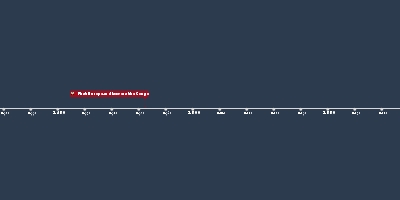The First (1996-1997) and Second (1998-2003) Congo Wars (1 Okt 1996 Jahr – 18 Jul 2003 Jahr)
Beschreibung:
The Rwandan Genocide and Civil War led to Hutu extremists hiding out in the Congo after their loss to the Tutsis. Mobutu not only supported the exiled group; he also promoted violence against Tutsis living in Zaire (Congo). This led the Rwandan government to join forces with Laurent Kabila and the Alliance of Democratic Forces for the Liberation of Congo-Zaire. Together, they launched attacks on Zaire, starting the First Congo War. In just a year, they were able to overthrow Mobutu. Kabila took over as president, and changed the countries name to the Democratic Republic of the Congo.It did not take long for Kabila to begin silencing any sort of opposition or criticism of his rule. Despite claims of establishing a democracy, he was more of a dictator, and was accused of human rights violations. By August 1998, the people of the Congo staged a rebellion in the east. This sparked the beginning of the Second Congo War. These rebels received support from Uganda and Rwanda, allowing them to gain control of a third of the country by the end of the year. An attempted cease fire failed in 1999, leading to more violence.
While Kabila was fighting the rebels, ethnic issues between the Hema and Lendu people were reaching a peak. This tension turned into violence, adding another layer to the war. In January 2001, Kabila was assassinated. His son, Joseph Kabila, took over as the president. Fighting continued up until the ratification of a peace agreement in April of 2003.
Cordell, D. D. , Payanzo, . Ntsomo , Wiese, . Bernd Michael and Lemarchand, . René. "Democratic Republic of the Congo." Encyclopedia Britannica, April 29, 2021. https://www.britannica.com/place/Democratic-Republic-of-the-Congo.
Zugefügt zum Band der Zeit:
Datum:
1 Okt 1996 Jahr
18 Jul 2003 Jahr
~ 6 years and 9 months
